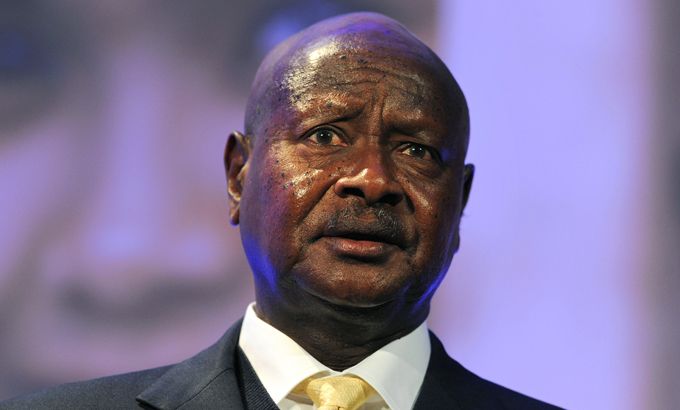Ebola outbreak claims more lives in Uganda
President appeals for citizens to limit physical contact, as virus-related cases reported in capital Kampala.

The Ugandan president has called on people to limit physical contact with each other, after the death toll of a deadly outbreak of the Ebola virus climbed to 16.
Two cases have been reported in the capital Kampala since the outbreak began, President Yoweri Museveni said, and one victim is reported to have died in Kampala’s Mulago Hospital.
Keep reading
list of 4 itemsPalestinian Prisoner’s Day: How many are still in Israeli detention?
‘Mama we’re dying’: Only able to hear her kids in Gaza in their final days
Europe pledges to boost aid to Sudan on unwelcome war anniversary
“The Ministry of Health are tracing all the people who have had contact with the victims,” Museveni said in a state broadcast on Monday. Authorities say that dozens have been put in isolation in Kampala and the country’s west to prevent the spread of the virus.
Museveni called on people not to shake hands, to avoid the spread of the killer virus.
“Ebola spreads by contact when you contact each other physically… avoid shaking of hands that can cause contact through sweat, which can cause problems,” Museveni said.
“Do not take on burying somebody who has died from symptoms that look like Ebola. Instead, call health workers because they know how to do it… avoid promiscuity because this sickness can also [be transmitted] through sex,” he added.
Seven doctors and 13 health workers at Mulago hospital are in quarantine after “at least one or two cases” were taken there, with one later dying from the virus.
Additional cases
The latest outbreak of the disease started in the country’s western district of Kibaale, around 200km west of Kampala. The district is located about 50km from the border with the Democratic Republic of Congo.
|
Museveni has urged Ugandans to limit physical contact |
Stephen Bayaruhanga, health secretary of Kibaale, said on Monday that six more patients suspected to have contracted Ebola had been admitted to hospital.
He said that the cases had at first been concentrated in a single village, but are now been reported in multiple villages.
Rukia Nakamatte, the spokesperson of the health ministry, told Al Jazeera a facility had been set up to isolate people in affected areas.
“We have set up an isolation facility at one of the hospital in the affected areas… Currently we’re having seven patients in the facility. They’re receiving treatment and responding positively to the treatment being given,” she said.
“We’re also working with [the US] Centre for Disease Control and the WHO [World Health Organisation]. We have dispatched a team to the affected area to continue monitoring people who got into contact with the sick and the dead.”
She said samples from the patients would be delivered to the Uganda Virus Research Institute for further investigation. “Massive sensitisation programmes on radio stations advising people on what they should do” had been launched, she said.
No cure
Officials said many sick people with suspected Ebola were unwilling to be taken to the hospital fearing that they will contract the disease while there, if they do not already have it.
According to a health ministry statement released on Monday, some people also refused to seek treatment “because they believed that the cause of the illness was due to ‘evil spirits'”.
The health ministry has urged people to report any suspected cases of Ebola to the nearest health centre, to avoid direct contact with those suspected to be suffering from it and to avoid public gatherings in affected districts.
The rare haemorrhagic disease, named after a small river in DR Congo, killed 37 people in western Uganda in 2007 and claimed the lives of at least 170 people in the north of the country in 2000.
There is no vaccine or cure for Ebola, but experts say its extreme virulence makes it more containable, as it kills victims faster than it can spread to new ones.
It has a fatality ratio of between 23 and 90 per cent, according to the WHO.
Ebola is characterised by the sudden onset of fever, intense weakness, muscle pain, headache and sore throat, often followed by vomiting, diarrhoea and in some cases, both internal and external bleeding, according to the WHO.
It spreads by direct contact with the blood or other body fluids of infected persons.